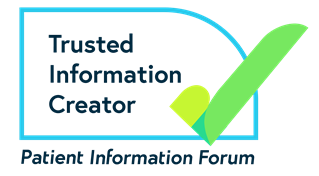Other medicines used in Crohn’s or Colitis
Painkillers
You can take normal doses of paracetamol if breastfeeding. It has been used during breastfeeding for many years without any negative effects on children. Always check with a GP or midwife before taking paracetamol if it's combined with other medicines.
Try to avoid ibuprofen. Ibuprofen could make your Crohn's or Colitis symptoms worse or possibly trigger a flare-up.
Mycophenolate mofetil
This medicine is also known by the brand name CellCept.
The manufacturers of this medicine do not recommend that you take this while breastfeeding. This is because small amounts of this medicine can pass into milk.
Ciclosporin and Tacrolimus
The manufacturers of these medicines do not recommend that you take this while breastfeeding. This is because small amounts of these medicines can pass into milk.
You should discuss the benefits and risks of taking these medicines with your IBD team. You may be able to take ciclosporin and tacrolimus while breastfeeding if the benefits outweigh the risks. Your baby may have extra checks to make sure the medicine is not affecting them.
Metronidazole and Ciprofloxacin
These antibiotics are sometimes used to treat infections linked to Crohn’s or pouchitis after pouch surgery, also known as IPAA surgery.
The manufacturers of metronidazole recommend you stop breastfeeding until 12 – 24 hours after you have finished taking metronidazole.
You can take ciprofloxacin while breastfeeding if your doctor or health visitor says your baby is healthy. Ciprofloxacin passes into breast milk in small amounts and is unlikely to cause any side effects in your baby. It’s usually only prescribed for a short time. You should monitor your baby for diarrhoea, nappy rash or thrush.
Antidiarrhoeals
- Colestyramine, also known as the brand name Questran
- Loperamide, also known as the brand names Imodium and Arret
You can take colestyramine while breastfeeding. You may develop deficiencies in some vitamins if you’re taking it long-term, so you may need extra checks or supplements.
The amount of loperamide that enters milk is small. Taking recommended amounts of loperamide is unlikely to affect your baby. Talk to your IBD team if you need to take loperamide regularly.
Antispasmodics
- Hyoscine butylbromide, also known by the brand name Buscopan
- Mebeverine, also known by the brand names Colofac, Colofac IBS and Aurobeverine
- Alverine citrate
- Peppermint oil
You should not take hyoscine butylbromide or alverine citrate while breastfeeding. There is no data to say whether they are safe or not.
You can take mebeverine or peppermint oil while breastfeeding. There is not much data, but it’s thought that very little of these medicines pass into breastmilk.
Allopurinol
You may be able to take allopurinol while breastfeeding if the benefits outweigh the potential risks. If you want to take allopurinol, discuss this with your IBD team. Allopurinol passes into breastmilk but is not known to cause any serious side effects in babies. Your baby may have extra monitoring if they’re only fed with breast milk.



